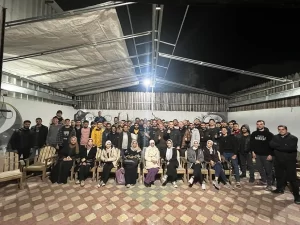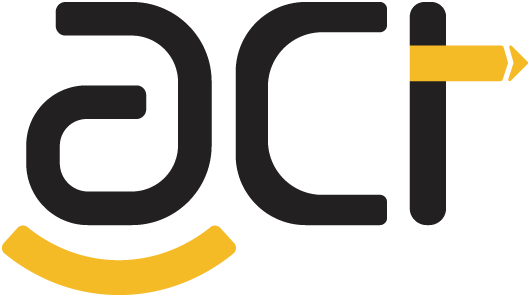The initiative began with an idea to assist remote workers in the Gaza Strip in returning to work by creating a workspace using available materials. Starting with a simple tent, it eventually evolved into the first co-working space in Rafah and extended to Deir Al-Balah and Egypt.
The Hope Hub initiative was born out of a desire to support individuals in Gaza during times of war, allowing them to continue their work. Thanks to your contributions Hope Hub, thousands of Palestinians in Rafah and Deir alBalah were able to reconnect to their online jobs, while also helping Palestinians in Egypt network and establish connections to secure employment opportunities. With your help, we can extend our reach to a wider audience!
In a region where war looms large over everyday life, where uncertainty seeps into every corner of existence, one might expect dreams of entrepreneurship and freelancing to be snuffed out. Yet, in Gaza, where the war has become a constant companion, the spirit of resilience burns brighter than ever. Across bombed-out buildings and beneath skies filled with uncertainty, a growing number of freelancers and entrepreneurs are not only surviving — they’re thriving.
At the heart of this resurgence is an unexpected yet vital form of resistance: digital entrepreneurship. The digital economy has offered a lifeline to Gaza’s professionals, who, while geographically isolated, have remained connected to the world through their screens. But staying connected in Gaza requires more than a laptop and a Wi-Fi signal; it demands ingenuity, determination, and the support of initiatives that understand the stakes involved.
One such initiative is HopeHub, led by Act for Development and Entrepreneurship, which has played a crucial role in keeping Gaza’s freelancers and entrepreneurs tethered to the global economy. Amidst power outages, unstable infrastructure, and the constant specter of war, HopeHub provides training, resources, and a sense of community to those striving to build their futures in the most challenging of circumstances.
“Gaza is not a place where opportunity comes easily,” explains Salah Ahmed, the visionary behind Act for Development and Entrepreneurship. “But the people here have proven that they have the creativity, drive, and sheer willpower to overcome the toughest of odds. What we’ve done with HopeHub is provide them with the tools and the environment to keep pushing forward, even when the world outside seems to be collapsing.”

A dedicated freelancer participates in an online training session at HopeHub in Gaza.
Since its establishment, HopeHub has become a lifeline for thousands of freelancers, entrepreneurs, and professionals who depend on global markets for their livelihoods. The initiative has supported over 382 contract remote workers engaged with 337 local and international companies, while helping more than 1,380 freelancers secure new projects and sustain their income streams. HopeHub has also facilitated education for 1,296 students, who have used the space to attend virtual classes, complete assignments, and benefit from mentorship. Furthermore, it has trained more than 2,029 individuals in specialized areas including IT, freelancing, digital marketing, and personal branding, adapting to current market demands and enhancing their employability. HopeHub has also supported 13 academic professors in continuing to provide online educational courses, ensuring continuity in higher education despite challenges. Additionally, 15 employees from various local and international institutions have been able to sustain their engagement with the community through the use of our hubs. Workshops and seminars held by HopeHub have impacted 962 individuals, providing valuable insights from industry leaders and fostering networking opportunities.
But it is not just the numbers that tell the story. Behind every statistic is a person — someone who, against all odds, has decided that their circumstances will not dictate their future. For every freelancer sending a project halfway across the globe, for every entrepreneur pitching their idea to foreign investors, there is a tale of resilience that defies the conventional narrative of war-torn despair.
One freelancer, for example, shared how HopeHub helped him maintain critical connections with clients during the most intense periods of the war. “Without a stable place to work, where I knew I could count on the basics like electricity and internet, I would have lost everything,” he said. “HopeHub gave me more than just a desk — it gave me the confidence to keep going.”
That sense of confidence is at the core of HopeHub’s mission. By providing access to critical infrastructure and creating an environment that fosters collaboration and support, the initiative has turned what could have been a period of isolation into an opportunity for growth. Freelancers and entrepreneurs can access reliable electricity and internet, ensuring they remain competitive in the global market. The initiative also offers quiet workspaces, essential for virtual meetings, allowing individuals to continue building their businesses uninterrupted by the chaos outside.
For many, the initiative represents more than just a physical space — it is a beacon of hope. “This isn’t just about offering short-term fixes,” Ahmed emphasizes. “We’re building a long-term vision where the digital economy can thrive in Gaza, where people can connect with the world beyond these borders, and where the next generation of entrepreneurs can succeed despite the obstacles they face.”

A group of freelancers at Rafah’s HopeHub engage in workshops.
But success in Gaza often looks different than it does elsewhere. It is a quieter, more persistent kind of success, born out of survival, sustained by community. While entrepreneurs elsewhere might measure their progress in profit margins and market shares, in Gaza, progress is measured in staying power — in the ability to adapt and continue in the face of relentless adversity.
HopeHub is not the only player in this space, but it is among the most impactful. It has established partnerships with local and international institutions, including Northumbria University, the University of Glasgow, Montada Plus and efe institution. These collaborations are critical in providing both legitimacy and access to further resources for Gaza’s digital workforce.
Ahmed’s vision is clear: “We’re not just surviving — we’re building something that will last beyond the war. HopeHub is part of a broader movement to empower Gaza’s people through innovation, education, and opportunity.”
As the world watches the seemingly endless cycle of violence and recovery in Gaza, stories like these offer a different perspective. They speak of resilience not as a romantic notion but as a tangible force — one that fuels not only survival but the pursuit of success against overwhelming odds. For freelancers and entrepreneurs in Gaza, resilience is their most valuable asset, and initiatives like HopeHub are the wind beneath their wings.
In a place where the future is always uncertain, Gaza’s entrepreneurs and freelancers are proving that they have the grit and the vision to carve out a path forward, no matter what obstacles lie in their way.
